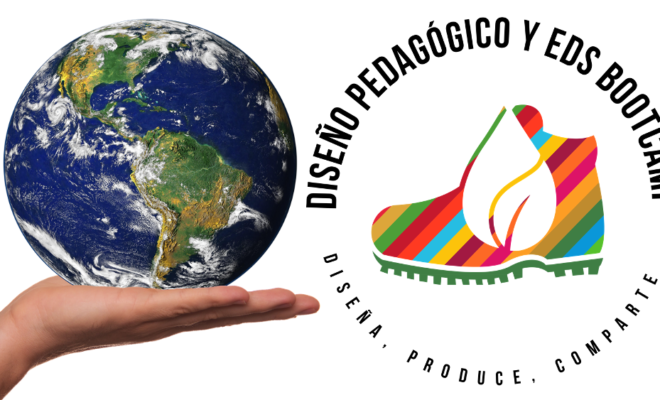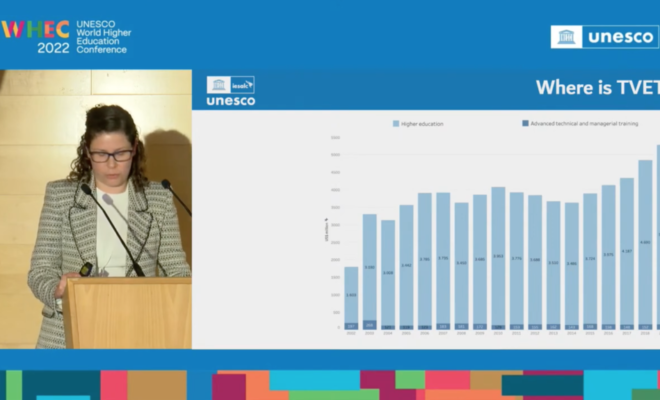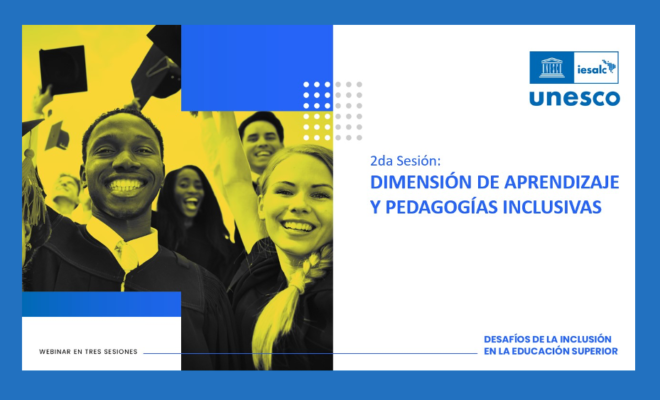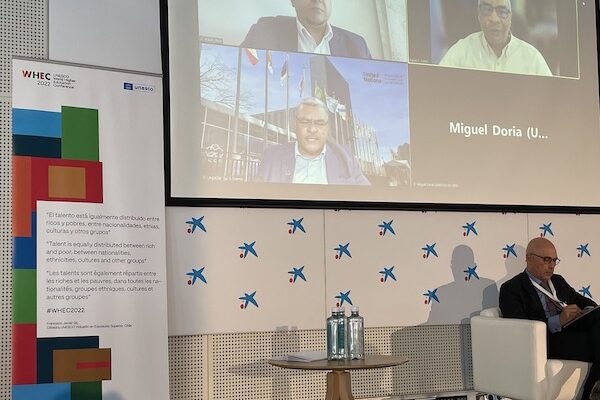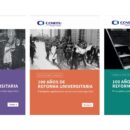People from around the world visualized what higher education could look like in 2050 and beyond
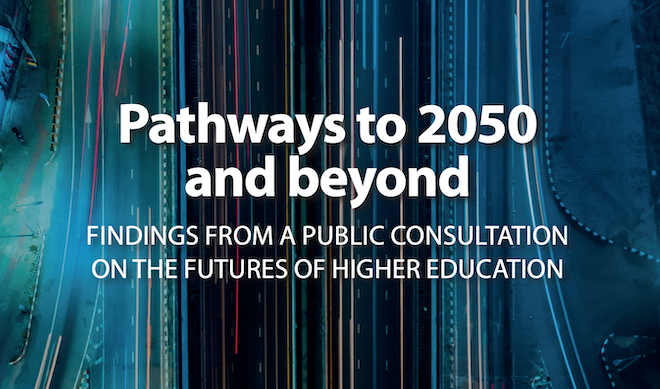
-
Higher education is expected to be inclusive, student-centered, responsive and connected
-
Higher education plays a crucial role in individual empowerment, community development, societal progress and global cohesion
-
Issues relating to access and inclusion were the most frequently mentioned, representing 30% of the total responses to the consultation’s questions on higher education
-
As more people graduate from higher education, sustainable development will become more attainable
“If higher education is available and affordable to all, everyone could have a better future in 2050”, wrote a respondent from Namibia. She, as well as 1,200 others in almost 100 countries participated in an online public consultation on the futures of higher education led by the UNESCO International Institute of Higher Education in Latin America and the Caribbean (IESALC).
The public consultation illuminated people’s hopes and concerns for the years ahead. The survey revealed key themes about how higher education in 2050 should be: inclusive, student-centered, with different ways of organizing knowledge, and connected at multiple levels to society, communities, and the planet.
Pathways to 2050 and beyond: Findings from a public consultation on the futures of higher education was coordinated by the UNESCO International Institute for Higher Education (IESALC). Between May and August 2021, the public consultation was open to all members of the public through a short survey, available in several languages.
The findings from the consultation, launched on November 25, 2021, illustrated rich diversity in people’s desires and concerns, advancing multiple ideas for higher education and its contributions to better futures for all. The plural concept of futures envisions a horizon both towards and beyond 2050 and encompasses the many ways that the futures might be.
Within the broad global diversity, it was still possible to identify four shared pathways towards these futures: quality of life, social change, environmental care and development of technology.
The pathways derived from the hopes expressed for human wellbeing, peace, social justice, research and innovation, sustainability, and advances in technology research. They were also drawn from issues that worry people for the future, from health concerns, poor quality of life, continuation of social inequalities and inequities, war and conflict, the degradation of the environment to unethical uses of technology.
This report connects the pathways to 2050 and beyond to respondents’ visions for higher education by offering more detailed insights on the different roles that higher education could play and the changes that might need to be made to achieve them.
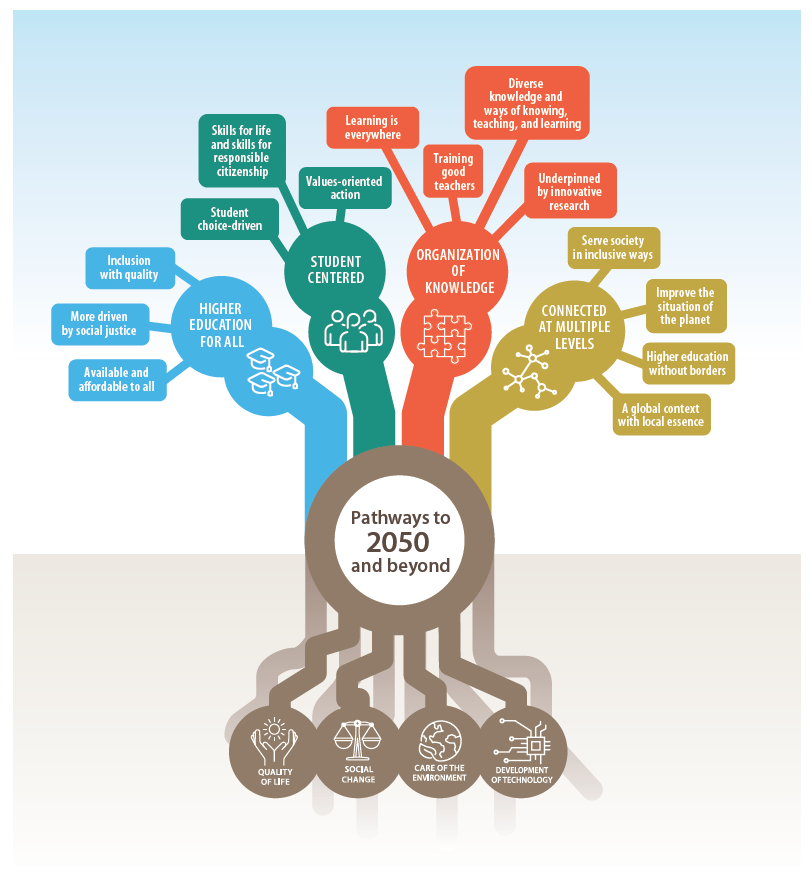 Key themes
Key themes
The key themes for higher education in 2050 begin with higher education for all. Issues relating to access and inclusion were the most frequently mentioned, representing 30% of the total responses to the consultation’s questions on higher education.
Topics relating to students were also high on respondents’ agendas, with 28% of responses linked to the idea that higher education futures can be student-centered. 22% of responses were related to ways to support higher education’s teaching and research functions and were grouped under the theme of the organization of knowledge.
Finally, 20% of responses were associated with how higher education could be more responsive and connected at multiple levels to society, communities, and the planet.
The message was clear: higher education plays a crucial role in individual empowerment, community development, societal progress, and global cohesion. As more people graduate from higher education, the higher level of education in societies will make sustainable development more attainable.
Across societies, higher education is seen as a mechanism to address today’s inequities, including differences within populations based on social group and economic standing and urban/rural divides that have typically disadvantaged those in remote communities.
Looking ahead to 2050, the benefits of higher education could be more equally available within states and across borders, led by principles of social justice such as access to resources, participation, diversity, inclusivity, and human rights.
Concerning the impact of Covid-19, respondents were hopeful that higher education institutions would be beacons of information, providing reliable and relevant knowledge to overcome future crises and at the same time becoming more resistant to their impact. Respondents also showed continued anxiety around health issues and their intersections with climate change, inequalities, and other global challenges.
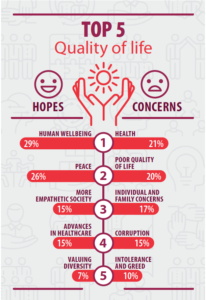
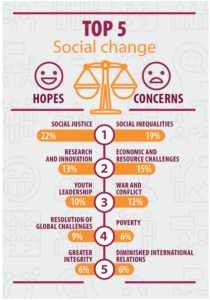
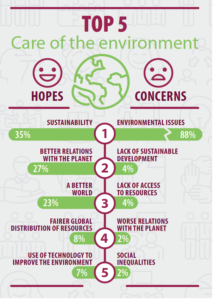
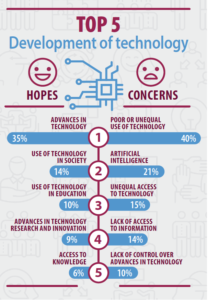
.
UNESCO and the futures of education
This UNESCO IESALC project on the Futures of higher education has been undertaken within the framework of the UNESCO initiative on the futures of education, which seeks to “reimagine how knowledge and learning can shape the future of humanity and the planet.”
A new flagship UNESCO report, Reimagining Our Futures Together, launched at the UNESCO General Conference in November 2021 makes the case for a new social contract for education, rebalancing how we live with Earth and with each other. Reimagining Our Futures Together highlights the importance of higher education in catalyzing educational transformation in the years ahead.
UNESCO IESALC’s contributions to the UNESCO futures of education initiative include Thinking Higher and Beyond: Perspectives on the futures of higher education to 2050, published in May 2021, and this report Pathways to 2050: Findings from a public consultation on the futures of higher education, published in November 2021, which includes an interactive version and an open access dataset. The next phase of the project is a youth consultation on the futures of higher education.
| Survey questions |
| When you think about 2050, what are you most hopeful about? |
| When you think about 2050, what are you most concerned about? |
| How would you like higher education to be in 2050? |
| How could higher education contribute to better futures for all in 2050? |
| Calls to action |
| To inspire those in higher education, policymakers, and civil society to take up the challenge of envisioning better futures for all |
| 1. Advocate for the right to higher education: broaden role of HE in future societies and communities |
| 2.Address the barriers that limit participation: widen access to HE, fulfill individual capacities, policy change |
| 3.Open up access to knowledge: available and accessible to more people |
| 4.Empower the next generations: to express themselves and take leadership roles |
| 5.Strive for higher education to be more relevant: Transfer learned knowledge to local, national and global needs |
| 6.Become a futures thinker: anticipate challenges and push for changes |
RELATED ITEMS


